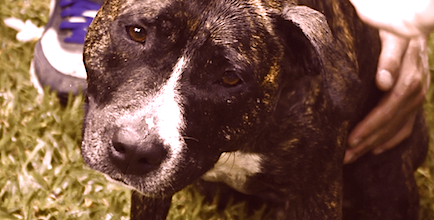What Happens During a Tylenol Overdose in a Dog or a Cat?
The harmful effects of this common medicine-cabinet drug can lead to serious liver damage, multiple-organ failure and sometimes even death in pets.

Known as Tylenol in the United States and paracetamol in the United Kingdom, acetaminophen is a common component of many non-aspirin painkillers sold over the counter at pharmacies for people to use.
Because of its effectiveness in humans and widespread availability, acetaminophen finds its way into bathroom cabinets. Unfortunately, if misused, Tylenol becomes a poison — for people, dogs and cats.
Cats are extremely sensitive to the harmful effects of Tylenol, and even small doses can be fatal. Dogs are more hardy in this respect, but extreme care must be used to avoid overdose. A combination of a tablet strength designed for human consumption and people incorrectly guessing their pet’s weight can all too easily lead to an overdose — with potentially serious consequences.
The effects of overdose include potential multi-system organ failure. If for whatever reason your pet has eaten Tylenol, contact your veterinarian immediately.

Don’t leave your pet’s safety to chance
Sign up for Petful recall alerts today.

Symptoms
Signs of toxicity differ between dogs and cats.
In dogs, the toxic metabolite of Tylenol causes liver damage. Symptoms can be vague and quite general, such as vomiting, loss of appetite and weakness, which may progress to coma and death.
In cats, the toxin binds to hemoglobin in the red blood cells and stops it from releasing oxygen into the tissue where it is needed. Starved of oxygen, the tissue dies.
The earliest signs of poisoning are drooling saliva and vomiting, which progress to:
- Labored breathing
- Facial swelling
- Extreme lethargy
- Low body temperature
- Death

Causes
When Tylenol is ingested, the first stage of metabolism breaks the acetaminophen down into smaller toxic molecules that need to be further broken down to make them safe.
One of the enzymes responsible for deactivating this toxic metabolite is called glucuronyltransferase. However, cats lack glucuronyltransferase, and even a small dose of Tylenol is therefore poisonous.
Dogs are better equipped than cats to break down the toxic metabolite of Tylenol, but if incorrectly dosed, dogs’ bodies cannot process the excessive amount of metabolite, which then builds to toxic levels and poisons the dog.
Diagnosis
Suspicion of Tylenol toxicity is raised if people have either given their pet Tylenol or find that their dog has broken into the medicine cabinet. Clinical signs of depression and vomiting further raise suspicions.
Within 4 to 12 hours of ingesting Tylenol, cats’ normally pink gums turn a muddy brown color because the methemoglobin is rendered unable to release its oxygen.
Blood test results, though not specific, can point to liver damage in the dog and red blood cell abnormalities in the cat.

Treatment
It is critical to get the pet to a vet without delay.
If the pet has eaten Tylenol less than 2 hours earlier, the veterinarian makes the pet vomit to get rid of any tablet still present in the stomach. Regular oral dosing of activated charcoal also helps mop up any Tylenol lingering in the intestine.
An antidote called n-acetylcysteine can be given to prevent further damage, but often by the time the cat or dog gets to the vet, harm has already been done.
Intravenous fluids to support the animal’s circulation are important, and Vitamin C can help convert methemoglobin back to active oxyhemaglobin. Other drugs, such as cimetidine, can help interrupt the pathway leading to toxin release and reduce the chance that more poison pours into the bloodstream.
Prevention
Extreme care is necessary when giving Tylenol to dogs to ensure that they are not overdosed.
Tylenol should never be given to cats. A dose as little as 10mg/kg is dangerous. For a 5kg (11 pound) cat, this is equivalent to 50mg, or one-tenth of a regular 500mg Tylenol tablet, so you can appreciate the feline’s extreme sensitivity to acetaminophen.
References
- “Acetaminophen toxicosis in 17 cats.” Aronson & Drobatz. J Vet Emerg Crit Care, 6(2): 65–69.
- “Aspirin and acetaminophen.” Oehme. Current Veterinary Therapy. Publisher: Saunders.
- Small Animal Toxicology and Poisoning. Gfeller & Messonnier. Publisher: Mosby.
This pet health content was written by a veterinarian, Dr. Pippa Elliott, BVMS, MRCVS. It was last reviewed Oct. 13, 2018.







